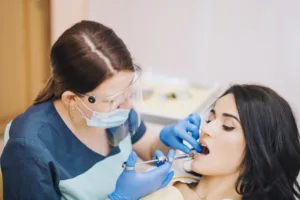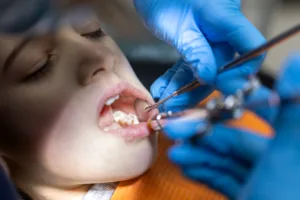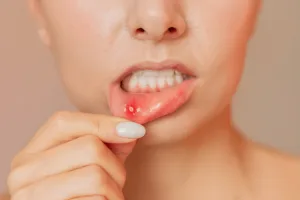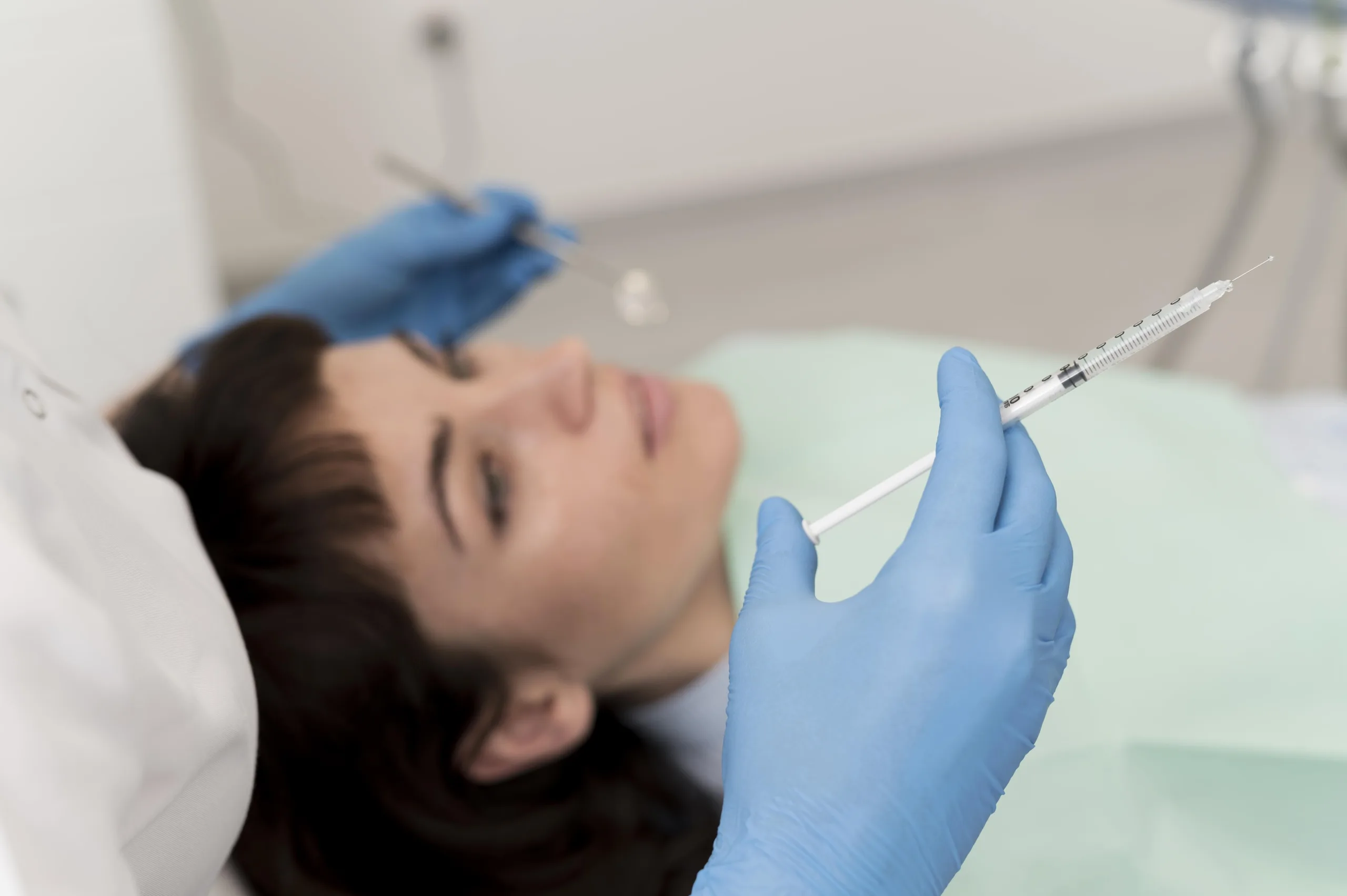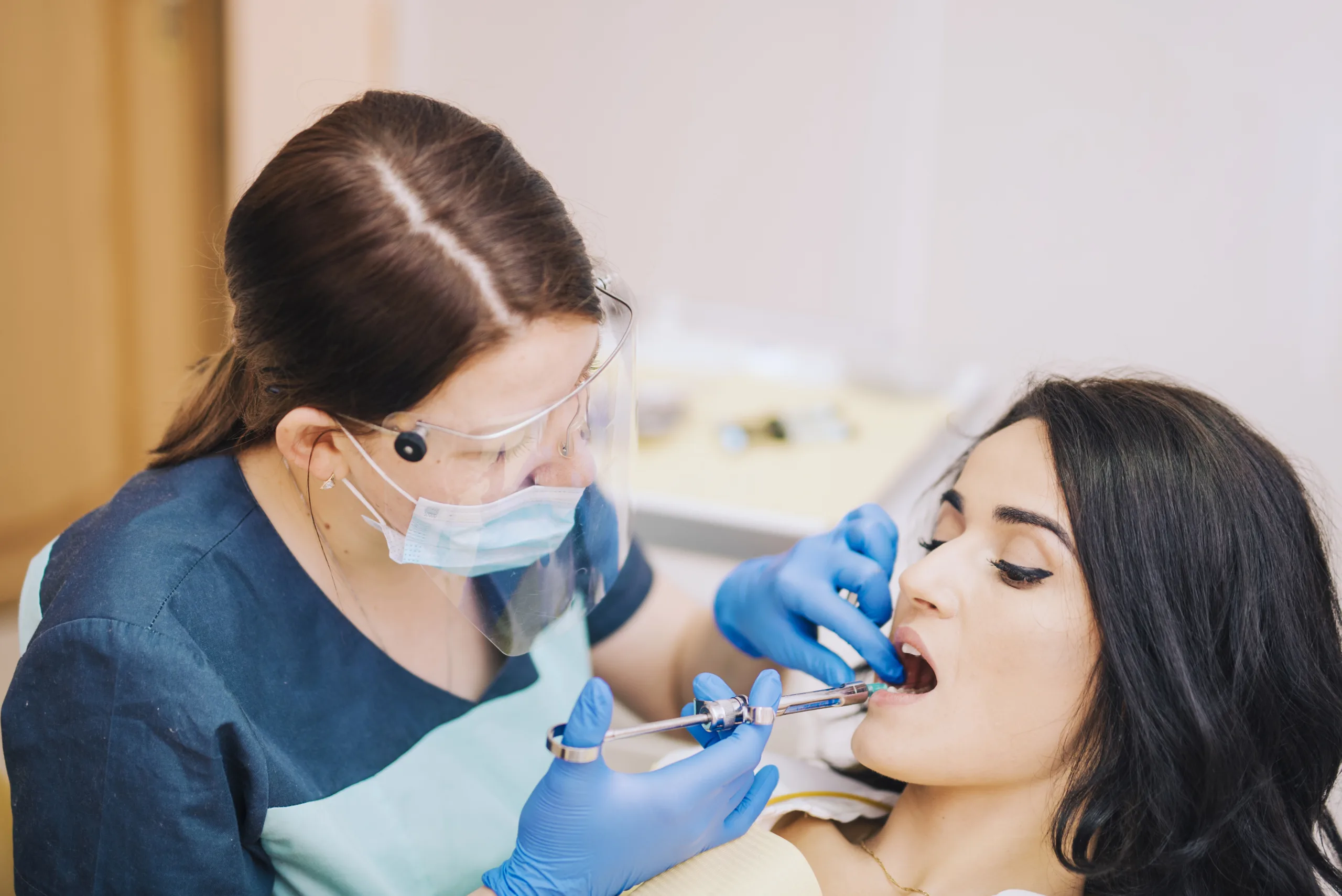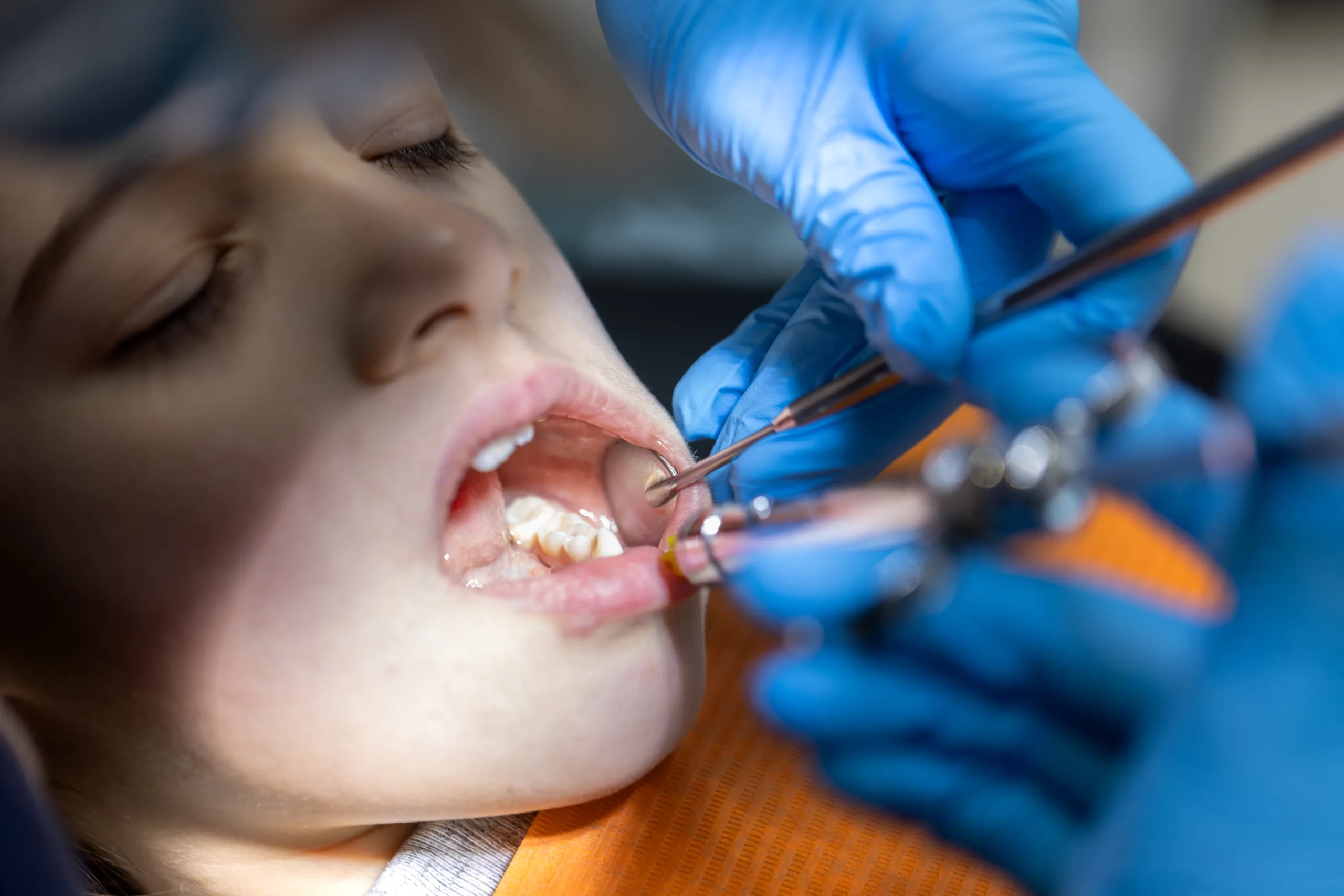When you reach for a sparkling drink like soda water, you might think you’re making a healthy choice—no sugar, no colour, just bubbles. But is soda water bad for your teeth? The answer is yes. Soda water can be harmful, though much less than sugary soft drinks. In moderate amounts and with good habits, the risk is lower, but it’s not zero.
Here’s what dentists want you to know about frizzy drinks.
Table of Contents
What Exactly Is Soda Water?
Soda water, also known as carbonated water or sparkling water, is created through a process called carbonation. During this process, carbon dioxide gas is dissolved in regular water under pressure. This chemical reaction produces carbonic acid, which gives soda water its distinctive fizzy sensation and slightly tangy taste.
The carbonation process is what sets soda water apart from regular tap water, but it’s also what creates potential concerns for your dental health. Understanding this fundamental difference is crucial when evaluating whether soda water is bad for your teeth.
Are There Negative Effects of Drinking Soda Water?
The primary concern with soda water lies in its acidity. When carbon dioxide dissolves in water, it forms carbonic acid, lowering the pH level of the beverage. This acidic environment can pose risks to your tooth enamel – the hard, protective outer layer of your teeth.
Tooth enamel is the hardest substance in the human body, but it’s not invincible. When exposed to acidic substances repeatedly, enamel begins to soften and erode. This process, called demineralisation, weakens your teeth and makes them more susceptible to:
- Tooth decay and cavities
- Increased sensitivity
- Discolouration
- Structural damage over time
The good news is that your saliva naturally works to neutralise acids and remineralise your teeth. However, frequent exposure to acidic beverages can overwhelm this natural protective mechanism.
Which is Healthier: Soda Water or Sparkling Water?
While soda water does contain carbonic acid, it’s significantly less acidic than most soft drinks. Regular cola typically has a pH of around 2.5, while soda water usually ranges between 3.5 and 4.0. For comparison, neutral water has a pH of 7.0.
This means that while soda water is bad for your teeth compared to regular water, it’s considerably less damaging than traditional soft drinks. The absence of added sugars in plain soda water also eliminates the risk of feeding harmful bacteria in your mouth, which produce additional acids as they consume sugar.
What About Flavoured Sparkling Waters?
Not all sparkling waters are created equal. Many popular brands offer flavoured varieties that may contain:
- Natural or artificial flavouring
- Citric acid for enhanced taste
- Small amounts of sugar or artificial sweeteners
Flavoured sparkling waters, particularly those with citrus flavouring, tend to be more acidic than plain soda water. The addition of citric acid can lower the pH even further, potentially increasing the risk to your dental health.
Are Tonic Water and Mineral Water Better Alternatives?
- Tonic Water: Despite its name, tonic water is not necessarily a healthier choice. It contains quinine, which gives it a distinctive bitter taste, and often includes added sugars. The combination of carbonation, acidity, and sugar makes tonic water potentially more harmful to teeth than plain soda water.
- Mineral Water: Natural mineral water can vary significantly in its composition. Some mineral waters are naturally carbonated, while others have carbonation added to them. The mineral content and natural pH levels can differ based on the source. Generally, still mineral water is preferable for dental health, though some naturally sparkling mineral waters may be less acidic than artificially carbonated options.
What Should You Look for When Choosing Beverages?
When selecting beverages with dental health in mind, consider these factors:
- Check the pH Level: Look for beverages with higher pH levels (closer to neutral). Some brands now include pH information on their labels.
- Read the Ingredients: Avoid products with added sugars, artificial sweeteners, or excessive citric acid.
- Consider Frequency: The frequency of your acidic beverage consumption matters more than occasional consumption.
- Timing Matters: Drinking acidic beverages during meals rather than throughout the day helps minimise exposure time.
Is it Okay to Drink Soda Water Daily?
It is generally safe to drink plain, unflavored soda water daily, provided you do so in moderation and adopt protective dental habits. The major risk is not the occasional drink, but sipping it constantly throughout the day. Frequent, prolonged exposure to its mild acidity will soften tooth enamel over time. If you replace fluoridated tap water with soda water as your primary daily fluid intake, you also miss out on the protective benefits of fluoride.
Can I Drink Sparkling Water Without Brushing My Teeth?
If you enjoy soda water and want to continue drinking it while protecting your dental health, consider these strategies:
- Wait Before Brushing: Don’t brush your teeth immediately after consuming acidic beverages. Wait at least 30-60 minutes to allow your enamel to reharden. Brushing softened enamel can cause significant, irreversible erosion.
- Use a Straw: Drinking through a straw helps direct the liquid past your teeth, reducing direct contact with enamel.
- Don’t Sip Slowly: Consuming your drink quickly rather than sipping it over an extended period minimises the time your teeth are exposed to acid.
- Rinse with Water: After drinking soda water, rinse your mouth with plain water to help neutralise acids and wash away residue.
- Choose Mealtimes: Consume soda water with meals rather than alone. Food helps stimulate saliva production, which naturally buffers acids.
What Are the Best Beverage Choices for Dental Health?
- Plain Water: Regular tap water remains the gold standard for dental health. In Australia, most tap water contains fluoride, which actively helps protect teeth from decay.
- Milk: Rich in calcium and phosphates, milk helps strengthen teeth and neutralise acids in your mouth.
- Green Tea: Contains natural fluoride and antioxidants that can benefit oral health, though it should be consumed without added sugar.
When Should You Consult a Dentist?
If you’re experiencing any of the following symptoms, it’s important to schedule an appointment with your dentist:
- Increased tooth sensitivity
- Visible changes in tooth colour or texture
- Frequent cavities despite good oral hygiene
- Pain when consuming hot, cold, or sweet items
At Richmond & Springvale Dental Group, we can assess your individual risk factors and provide personalised recommendations based on your lifestyle and dietary habits.
The Bottom Line
So, is soda water bad for your teeth? While it’s not as harmful as sugary soft drinks, soda water does pose some risks due to its acidic nature. However, with proper oral hygiene and mindful consumption habits, you can continue to enjoy sparkling water while protecting your dental health.
If you have concerns about how your beverage choices may be affecting your dental health, don’t hesitate to contact the experienced team at RS Dental. We’re here to help you maintain a healthy, beautiful smile while still enjoying the foods and drinks you love.




